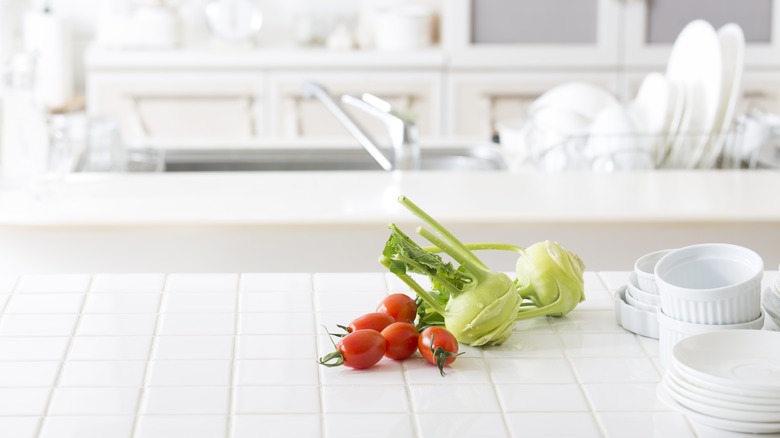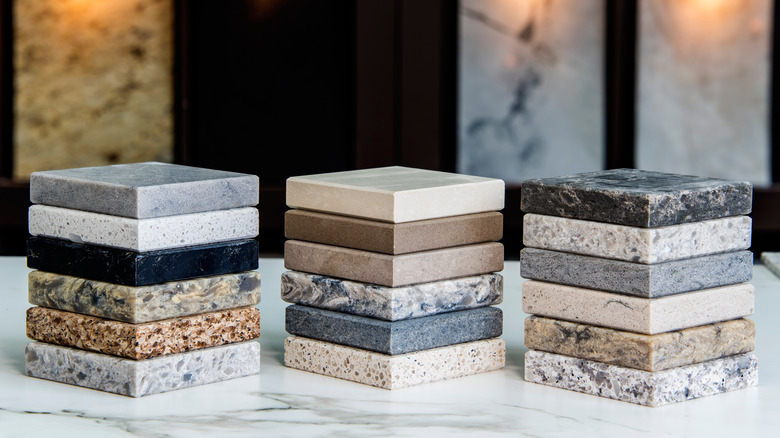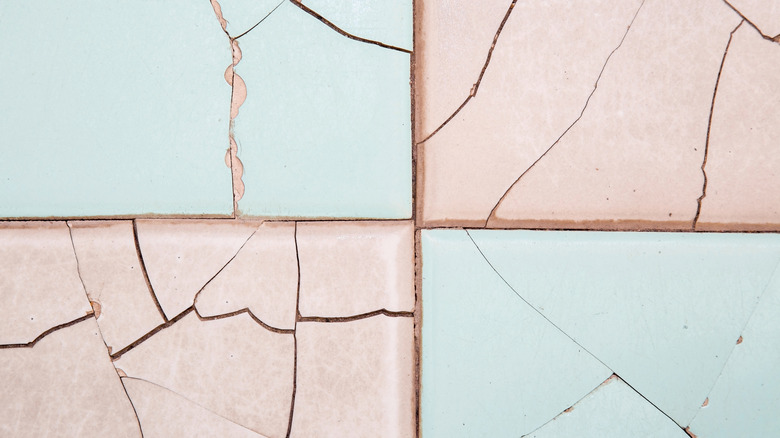Should You Invest In Tiled Countertops?
Incorporating tile into our kitchen design is nothing new, but nowadays, it's moving from the walls to our working surfaces. According to a study by Bosch Home Appliances, the average American spends over 400 hours in their kitchen a year, so the final look of your space has a major impact on your day-to-day activities (via OnePoll). Adding tiling to your countertops is a great way to bring some texture and pattern to your space without the hefty price tag of granite or marble, but if you're considering this option, you may be wondering if it's as functional as it is fashionable.
As with every design option, tiling your countertops has its pros and its cons, so before you head to the store to find your perfect sample, it's best to do a bit of research. Here, we take a look at the good and the bad that comes with tiling and if this look is the right choice for your lifestyle.
The pros
Typical granite or quartz countertops have a few drawbacks — mainly, the lack of options for customization and high cost — but tiling solves that problem. According to numbers from Fixr.com and HGTV, tiling your countertops is, on average, cheaper, and you have the choice to fully cater the look to what you want, mixing and matching the thousands of options available on the market to create a unique final product. Bold colors, unique materials, and interesting patterns are more readily available as tiles than slabs, so you have more creative flexibility in your home's design.
Tiles are also heat-resistant and great at maintaining their sheen, meaning you won't have to worry about burn marks and constant polishing, and most are sealed so you won't have any issues with staining on your surfaces. Another major plus is the ease of replacement. Unfortunately, ceramic or porcelain tile isn't quite as strong as some other materials, but if you find yourself with cracks or damage, you can easily repair or replace one small section instead of the entire countertop slab.
The cons
The biggest downside of tiling your countertops is the difficult maintenance. HGTV notes you should be resealing the grout on your countertops whenever the grout wears away to prevent staining and any rogue food particles from getting caught in the cracks. Regularly cleaning the grout is also very important for this reason — the tiles themselves might not stain, but the grout will likely soak up a bit of whatever you spill and begin to brown over time. Additionally, tiling isn't a perfectly flat surface. You may have to deal with wobbly cutting boards when you're preparing your dinner.
All in all, this might not be the best option if you're cooking often, have a habit of slamming down pots and pans, or frequently spill food and beverages that stain, but for the casual cook that wants a cost-effective alternative to typical granite and some more flexibility in their kitchen design, it can be a great, and fashionable, option.


